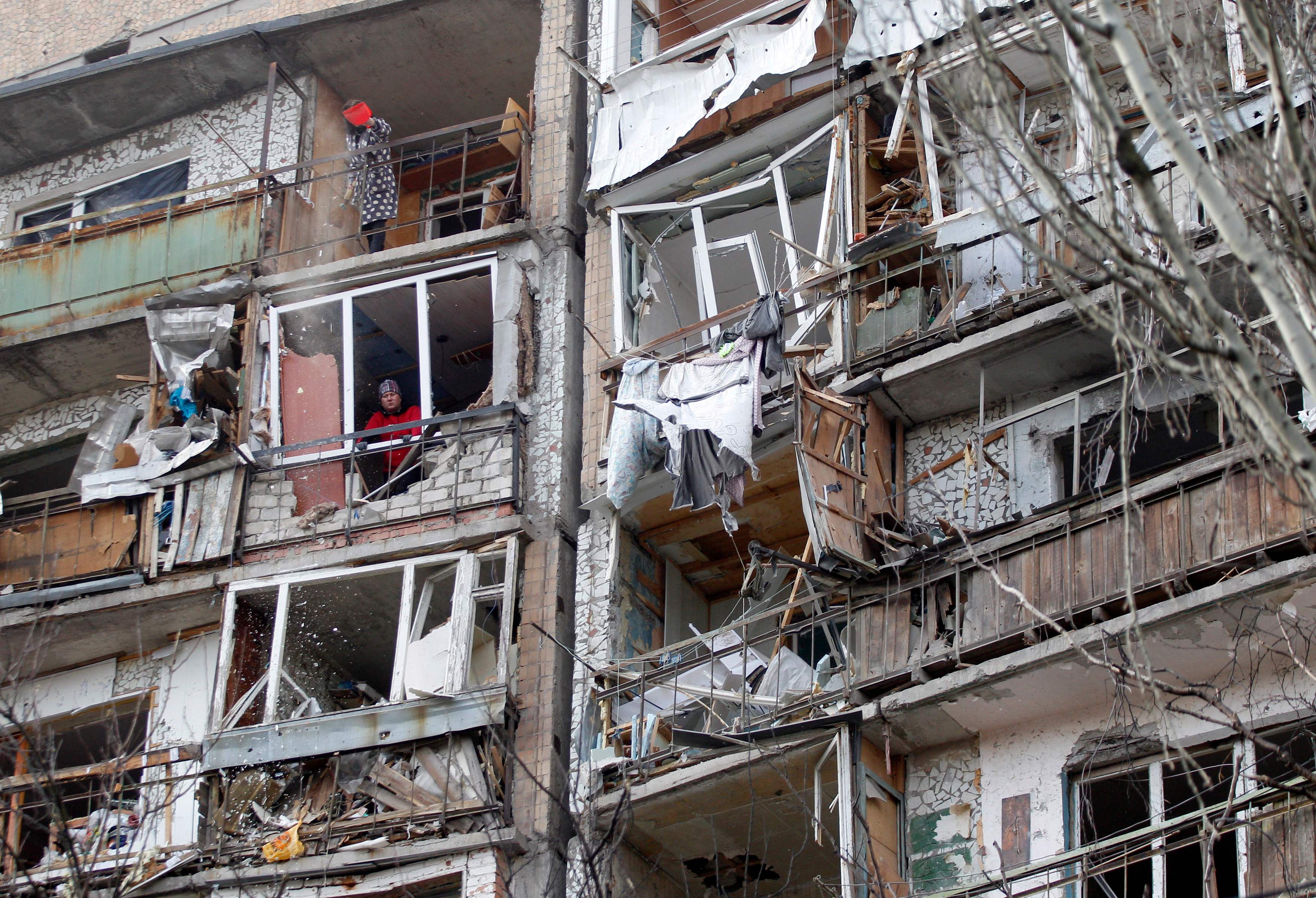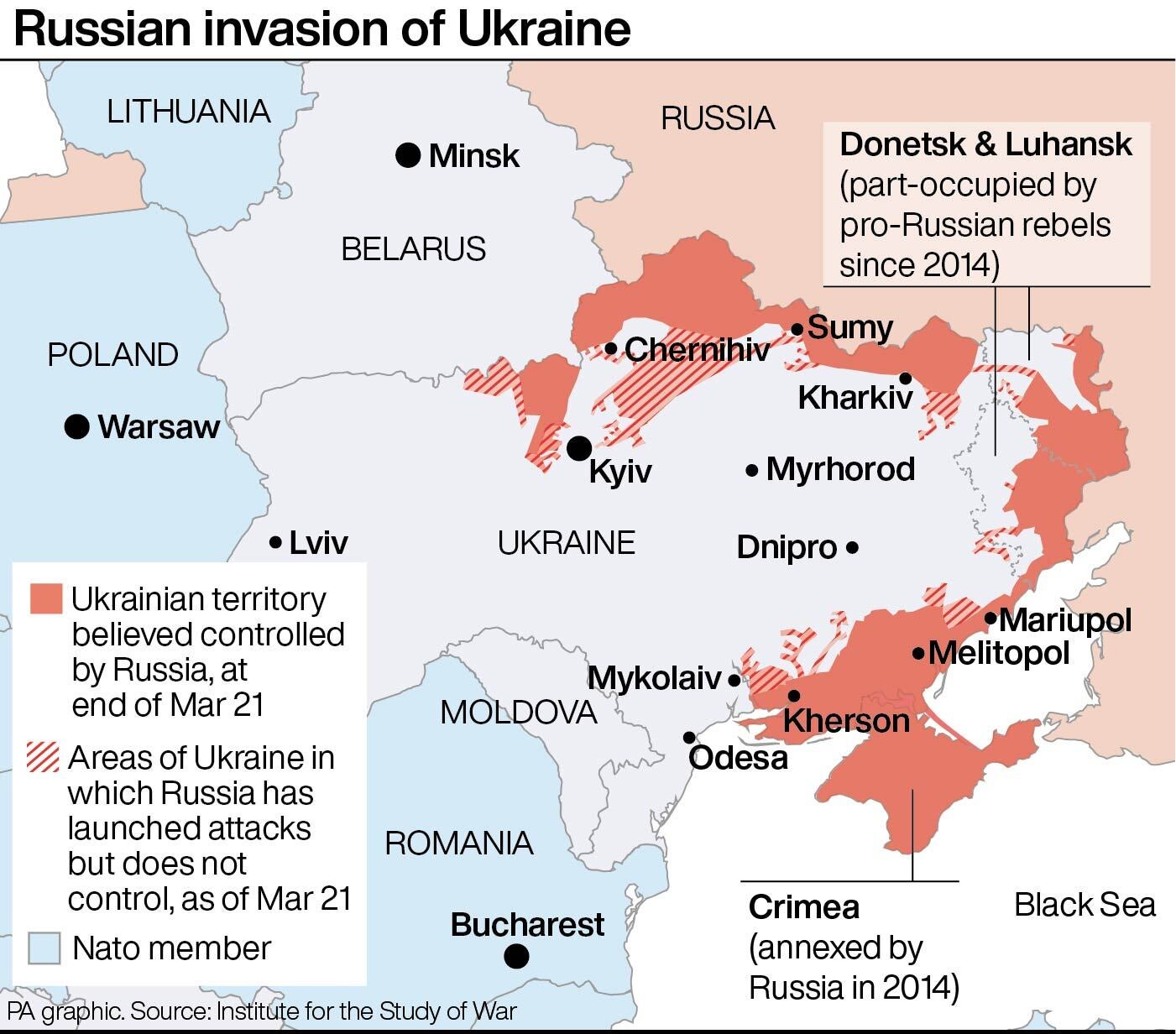Ukraine says Russia using phosphorus bombs as Biden warns of ‘real threat’ of chemical weapons attack
Ukraine claims that white phosphorus munitions were deployed in the eastern city of Kramatorsk

Russia has been accused of using phosphorus bombs in its invasion of Ukraine – as US president Joe Biden warned of the risk of a chemical weapons attack.
White phosphorus munitions were deployed in the eastern city of Kramatorsk on Monday, according to the deputy head of Kyiv’s police.
Oleksiy Biloshytskiy shared a video of material burning fiercely on the ground as it was touched with a spade. The footage has not been independently verified.
“Another use of phosphorus ammunitions in Kramatorsk,” he said.
There are rising fears that Vladimir Putin is considering turning to chemical warfare as Russia’s month-long invasion becomes bogged down by logistical problems and fierce Ukrainian resistance.
Biden said it was “a real threat” as he departed for Europe to attend a NATO summit on Wednesday.
The US has also reiterated its warning that Russia could be about to stage a ‘false flag’ attack to justify using chemical weapons.
Biden has previously said Russia’s claim that Ukraine has biological and chemical weapons is a clear sign Mr Putin is considering using them. He has warned of severe consequences if they are deployed.
Nato head Jens Stoltenberg also warned that any use of chemical weapons in Ukraine would have far-reaching consequences and “totally change the nature of the conflict”
“It would be a blatant violation of international law and would have far-reaching consequences,” he said.
Russia has already been accused of using devastating cluster bombs, and the UK said the Kremlin had confirmed it had used thermobaric weapons – which can rupture lungs and internal organs.
Kremlin spokesman Dmitry Peskov said on Tuesday that Russia would be prepared to use nuclear weapons if its existence is threatened – a suggestion the US criticised as reckless.
White phosphorus, which ignites on contact with air, is often used to mark enemy targets and produce a smokescreen to hide troop movements.
It can also be used to start fires, and can burn through bone when it comes into contact with flesh. It can kill, maim and poison victims.

The use of phosphorus is banned in heavily populated civilian areas under international law – but it is not considered a chemical weapon under the Chemical Weapons Convention.
Russia has been accused of using white phosphorus munitions before.
Phosphorus bombs were dropped in attacks on the cities of Lutsk in the west and Popasna in the east earlier this month, according to Ukrainian officials.
Russia has also been accused of using the weapons against civilians in Syria.
The Independent has a proud history of campaigning for the rights of the most vulnerable, and we first ran our Refugees Welcome campaign during the war in Syria in 2015. Now, as we renew our campaign and launch this petition in the wake of the unfolding Ukrainian crisis, we are calling on the government to go further and faster to ensure help is delivered. To find out more about our Refugees Welcome campaign, click here.
To sign the petition click here. If you would like to donate then please click here for our GoFundMe page.
Join our commenting forum
Join thought-provoking conversations, follow other Independent readers and see their replies
Comments


Bookmark popover
Removed from bookmarks